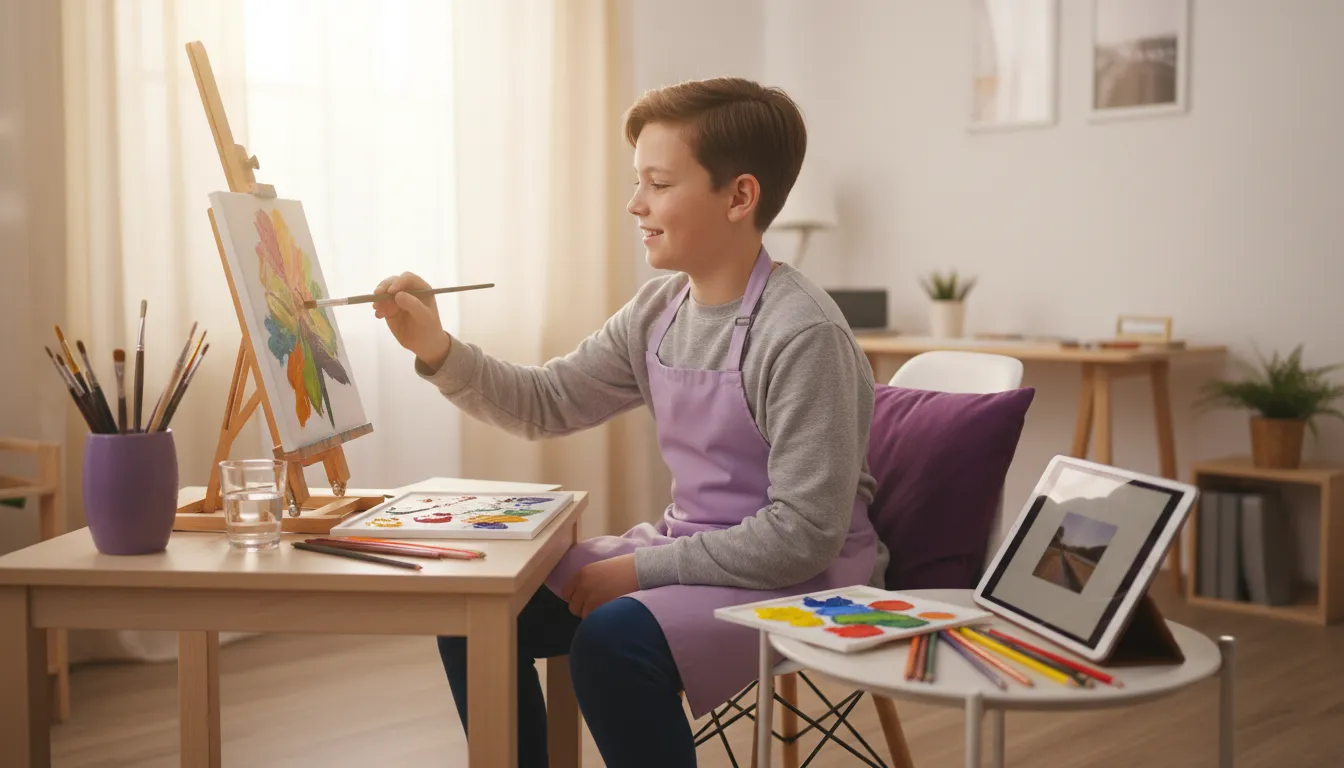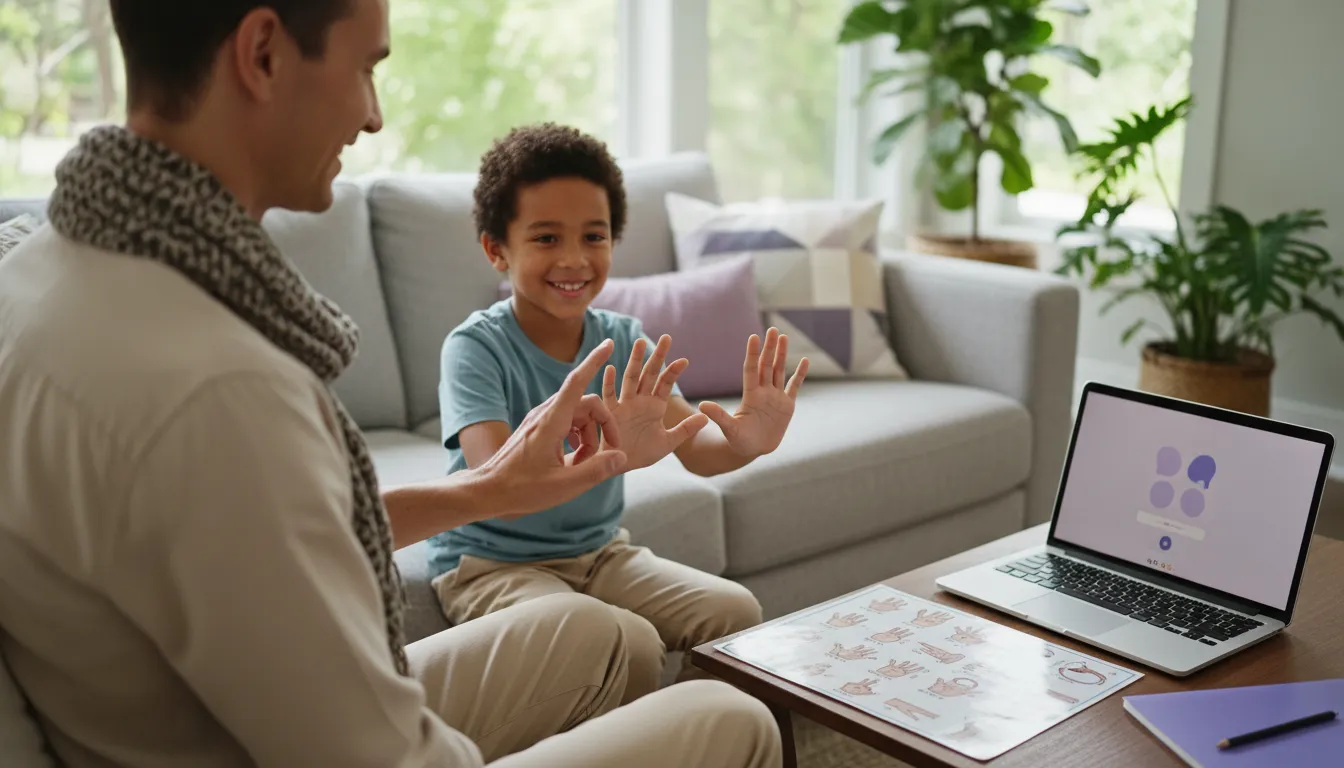Every day, families face a big decision: how and where their child will learn best. With over 3 million kids now homeschooled in the U.S., the homeschool vs public school conversation is more relevant than ever. Whether you’re exploring options or reassessing your current choice, it all comes down to helping your child thrive in an environment that suits them.
Today’s education landscape offers more flexibility than ever. Some kids do well in traditional public schools, while others flourish with the personalized pace of homeschooling. Many families blend both, using platforms like Outschool to supplement learning with live, interest-based classes. Let’s explore the real pros, cons, and practical considerations to help you find what fits your family best.
The main differences between homeschooling and public schooling
Homeschooling and public schooling offer distinct approaches to learning, each with its advantages. Homeschooling allows flexible pacing and personalized content tailored to a child's interests and needs. Public schools, meanwhile, offer structured learning environments, consistent peer interaction, and built-in support services.
Here’s how they compare:
- Curriculum: Homeschooling offers a flexible and customizable curriculum shaped around your child’s pace, interests, and your family’s values. Public schools follow standardized curricula aligned with grade-level and state requirements.
- Socialization: Homeschooling families plan social opportunities through co-ops, community groups, mixed-age activities, and, in many states, access to public school classes, clubs, or sports. Public schools naturally provide daily interaction with same-age peers through classes, clubs, and extracurricular activities.
- Specialized support: Homeschooling allows personalized approaches for neurodiverse learners, with special services sometimes accessible through public schools or dedicated programs. Public schools provide access to IEPs, speech therapy, and trained special education staff.
- Learning environment: In homeschooling, the world becomes the classroom; every aspect of learning can be customized to meet your child’s needs. Public schools offer a consistent classroom structure but with less room for individual customization.
Is homeschooling more effective than public school?
Both homeschooling and public school can produce excellent academic outcomes when aligned with your family's strengths and your child's learning style. When parents consider whether homeschooling delivers stronger academic results than public school, the research reveals encouraging insights that can help guide their decision.
- Homeschoolers consistently outperform public school peers on standardized tests, scoring 12.2 percentile points higher.
- Public schools provide certified teachers and specialized support services that can be invaluable for learners with disabilities, language barriers, or those who thrive with professional educational guidance.
- Individualized pacing becomes possible in homeschooling, allowing advanced learners to accelerate through subjects while giving others time to master concepts without pressure to keep up with a class.
- Homeschooling offers unmatched flexibility. As the parent, you can guide instruction based on your deep understanding of your child’s unique learning style and needs.
- Access to specialized facilities differs significantly. Public schools often offer science labs, music rooms, art studios, and sports facilities, while homeschool families create learning spaces at home and seek community resources like museums, co-ops, and local programs.
- Learning differences receive tailored support. Public schools offer formal IEPs and specialized staff, while homeschooling allows complete customization of teaching methods and schedules for neurodiverse learners.
Socialization and life skills: How do homeschool and public schools compare?
One of the most common questions parents ask is how homeschooling affects a child's social skills compared to public school. Research shows that children in both settings can develop strong social abilities, though the paths look quite different.
- Homeschoolers build diverse social networks through co-ops, community activities, and mixed-age interactions that mirror real-world relationships. Research shows they often score above average in social skills assessments.
- Public school students practice daily peer interaction in structured environments where they learn to navigate group dynamics, resolve conflicts, and work collaboratively on team projects.
- Homeschooling families create intentional social experiences by joining sports teams, theater groups, volunteer organizations, and faith communities that align with their values and interests.
- Public schools provide built-in social structure with regular exposure to diverse perspectives, backgrounds, and personalities within age-grouped settings.
- Children with diverse learning needs benefit differently from each approach: homeschooling allows for highly personalized social skill development, while public schools offer structured special education services and peer support groups.
- Homeschool parents must actively seek social opportunities to ensure their children develop strong interpersonal skills, requiring more planning but offering greater control over social influences.
- Both paths can produce socially confident children when families prioritize meaningful connections and provide opportunities for learners to practice communication, empathy, and leadership skills.
Pros and cons of homeschooling vs public school for families
Choosing between homeschooling and public school depends on your work schedule, your child’s needs, and your family’s values. Both paths offer meaningful benefits, along with a few trade-offs.
Homeschooling stands out for its flexibility and personalization. Families can travel during off-peak seasons, adjust learning to suit their schedule, and explore topics that deeply interest their child. This approach is constructive for neurodiverse learners, as it allows for customized environments, frequent breaks, and therapeutic integration.
Public school, in contrast, offers a structured setting with certified teachers, access to formal resources, and daily peer interaction. Children benefit from group learning, extracurricular activities, and exposure to different teaching styles.
Public schools also provide services like IEPs and trained specialists for those with special education needs. That said, limitations include larger class sizes, less individual attention, and less flexibility in schedule and curriculum.
FIRST MONTH FREE!
Get support that meets kids where they are.
Learn moreSide-by-side comparison: What families should consider
If you’re weighing both paths, here’s a quick comparison of how the two approaches differ:
- Flexibility: Homeschooling lets families set their own schedule, travel anytime, and adjust the pace of learning as needed. Public schools follow fixed calendars with attendance requirements and limited flexibility.
- Parental involvement: In homeschooling, parents take the lead as educators and coordinators of daily learning. In public schools, parents support their child’s education, but teaching is guided by certified instructors.
- Personalization: Homeschooling allows lessons to be fully customized around a child’s interests, pace, and strengths. Public schools use standardized curricula and pacing that follow state and grade-level guidelines.
- Social interaction: Homeschooling requires intentional planning for social time, often through mixed-age co-ops, clubs, or small group settings. Public schools naturally provide regular interaction with same-age peers during classes, group projects, and school events.
- Special education: Homeschooling provides room for highly tailored approaches but depends on the parent’s effort and access to outside specialists. Public schools offer formal IEPs, specialized staff, and in-school support services.
- Resources: Homeschooling families use what they can afford or access independently, from local programs to online classes. Public schools offer broader access to facilities such as libraries, labs, arts programs, and athletics.
With more families embracing hybrid options, like combining Outschool's live online classes with either educational path, the choice is no longer either/or. It’s about finding what best supports your child’s growth, your lifestyle, and your goals as a family.
Homeschool vs public school: Frequently asked questions (FAQs)
Choosing between homeschooling and public school can feel overwhelming, and it's completely natural to have questions about the practical details. These common concerns address the real-world considerations that can help you move forward with confidence and peace of mind.
What are the legal requirements for homeschooling in my state?
Homeschooling laws vary significantly across states, from minimal oversight to structured requirements. States like Oklahoma and Alaska have near-zero regulation with options for state-funded programs, while others may require notification, testing, or curriculum approval.
How do I ensure my child gets enough social interaction when homeschooling?
Homeschooled children can develop rich social lives through co-ops, community activities, sports teams, and interest-based groups. Many families organize regular playdates, join homeschool networks, or participate in community service projects that provide meaningful peer interaction across different age groups. The important thing is being intentional about creating diverse social opportunities that align with your family's values and your child's interests.
Can homeschoolers participate in public school sports or extracurriculars?
Access to public school activities for homeschoolers depends on your state's policies and individual district rules. Some states have specific guidelines that allow homeschooled students to participate in sports and clubs, while others restrict access to enrolled students only. Contact your local school district directly to understand their policies and explore community-based alternatives like club sports or recreational leagues.
How do I balance working with homeschooling responsibilities?
Many working parents successfully homeschool by getting creative with scheduling and resources. Start your child's learning early in the morning before work, use lunch breaks for quick check-ins, or dedicate evenings to hands-on projects while utilizing self-paced online programs during your work hours.
Educational co-ops allow parents to share teaching responsibilities; you can handle math for several families while another parent covers science. Some families hire part-time tutors or rely on grandparents to supervise learning activities, making homeschooling an actual family effort.
What resources are available to help parents build a diverse homeschool curriculum?
Homeschooling families can access many curriculum options, from traditional textbooks to online platforms, educational apps, and community resources. Many parents combine multiple approaches, using online homeschooling classes for subjects they're less comfortable teaching while handling others independently. Local libraries, museums, and educational centers often offer programs specifically designed for homeschoolers, creating opportunities for learning and community connection.
How do I know if my child is thriving in their current educational setting?
Look for signs of engagement, curiosity, and progress in academic and personal development. A thriving child typically shows enthusiasm for learning, develops age-appropriate social skills, and demonstrates growth in their areas of interest and challenge.
Remember that thriving looks different for every child. Some may excel academically while others shine in creative or social areas, and that's perfectly wonderful. Celebrate the small wins, trust your instincts as a parent, and remember that academic progress and learning joy are important indicators of success.
Empowering your family's learning journey
Choosing between homeschooling and public school isn't about finding the "perfect" option. It's about discovering what works best for your unique family. Whether you're drawn to the flexibility and personalization of homeschooling or the structure and resources of public education, remember that your child's learning journey can be enriched in countless ways.
Ready to explore how online homeschooling classes can enhance your learner's educational path? With over 100,000 classes available in live, self-paced, and 1:1 formats, you can build a personalized learning plan that complements your chosen educational approach.






.svg)
.svg)







